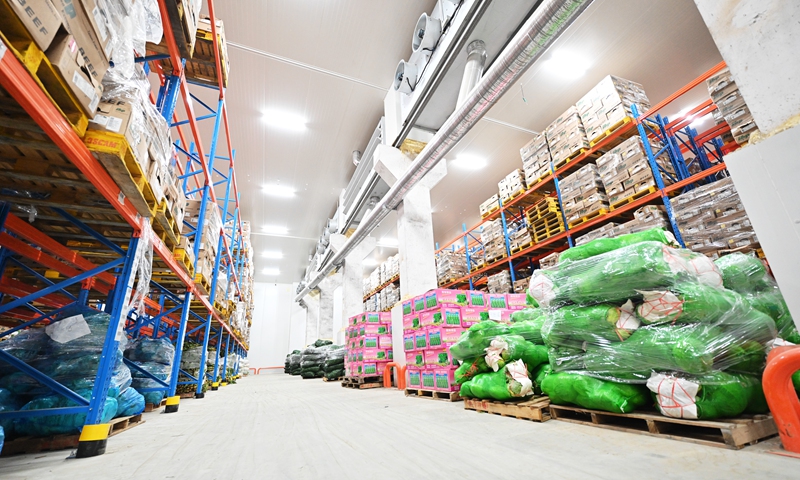Shanghai authorities have assured the public that daily supplies to its 25 million residents are secured with representatives from e-commerce platforms and couriers saying they have resumed operation.
Shanghai will continue to carry out mass nucleic acid testing and the city will continue to be under lockdown with 1,006 new confirmed cases and 23,937 asymptomatic carriers reported on Saturday, the local health authority said during a press briefing on Sunday.
The supply of foods and daily necessities has been a huge public concern among the residents since the city announced to implement a “layered” management with all the communities across the city classified into three categories including the sealed-off, control and prevention management sections based on the analysis of the nucleic acid testing results.
Authorities assured the public that supply and distribution will be strengthened to address city residents’ urgent needs of food, maternity and infant products and medicine.
According to Wang Wenbo, a manager from JD.com, foods and daily necessities have been transported to Shanghai, including over 80,000 packs of maternity and infant products such as infant formula powders and diapers, over 100,000 items of medicines and virus prevention supplies and 100,000 tons of mutton.
According to Wang, JD.com will send milk powder to the Shanghai Children’s Medical Center for the treatment and care of infants and children at the family-friendly COVID-19 wards launched at the massive makeshift hospital in the Shanghai New International Expo Center.
In terms of the storage of fresh foods, Wang said that the amount of rice, meat and seafood in stock is two or three times compared to normal times. The storage of 16 million product packs of rice, flours, edible oil can secure the daily supply to the users of JD.com for nearly one month.
Meanwhile, the company has allocated around 2,000 couriers to deliver the products. The latest model of unmanned intelligent delivery vehicles will be put into use in the seal-off areas to carry out contactless distribution.
Over 4,000 stores on the online food delivery platform Ele.me have resumed operation over the past week, Xiao Shuixian, senior vice president of Ele.me said during the press briefing.
According to Xiao, 2,800 riders have returned to their positions over the past week, endeavoring to address the “last mile” problem, the last stage in the process of logistics to deliver the products to residents staying at home.
Besides, the e-commerce platform Hema Fresh, in cooperation with Eleme, has launched an emergency channel for residents in over 5,000 compounds and the RT-MART supermarket that Ele.me cooperates with can supply 1,000 tons of vegetables and fruits in Shanghai, according to Xiao.
Ele.me also has rolled out an emergency service to special groups including the elderly living alone, patients with chronic diseases, and infants and the under-aged. Since March 28, the platform has provided 41,230 emergency services with 95 percent of needs from the special groups in urgent needs satisfied.
In terms of medicine supply, the platform has delivered nearly 1 million orders of medicine to local residents. The platform has cooperated with over 1,000 pharmacies across the city and has also secured medicines from more channels from outside the city, especially the medicines for chronic diseases, Xiao said.
In order to further improve distribution efficiency, the platform has allowed and expanded group purchasing in the communities. Its group meal purchasing service has covered over 1,000 compounds in districts such as Putuo, Yangpu and Pudong.
At the press conference on Sunday, Shanghai Municipal Health Commission noted that over 11,000 people had been discharged from hospital or freed from medical observation as of Saturday since the beginning of this flare-up. The authority urged their communities to get prepared for their return and allow them to go home without obstruction.
Pictured is a warehouse for vegetables in Fengxian district, Shanghai with a storage capacity of 1,200 tons of vegetables. Photo: VCG




